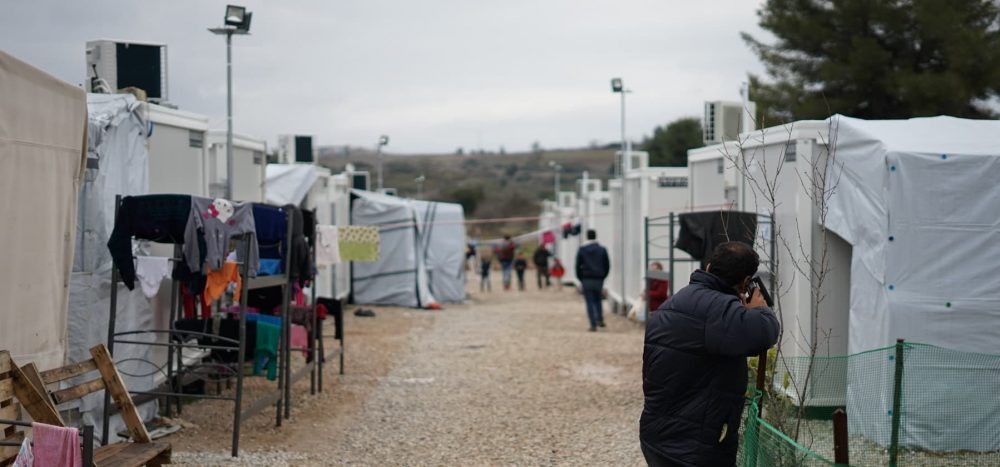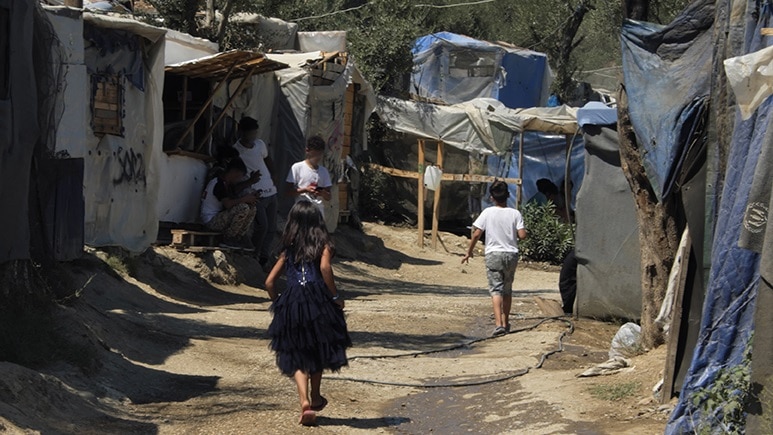Editorial comment: Today we are publishing two articles on the pressing needs of refugees and migrants. Here, Anish Verma and colleagues make the case for proper access to NHS for migrants and refugees in the UK. And here Peter von Kaehne describes his own experiences as a doctor in a refugee camp. David Misselbrook, Deputy Editor, BJGP.
Anish Verma is a Fifth Year Medical Student (Intercalating in MSc Healthcare Ethics & Law), Faculty of Biology, Medicine and Health, The University of Manchester
Marina Boulton is a Foundation Year One Doctor, Brighton and Sussex University Hospitals NHS Trust
Neil H. Metcalfe is a Quality and Evidence Personal Excellence Pathway GP Tutor, Faculty of Biology, Medicine and Health, The University of Manchester
Recent reform within the NHS includes the introduction of healthcare charges for individuals not ordinarily resident in the UK. Patients deemed ineligible for free care based on their immigration status can incur charges for secondary care at 150% of the NHS standard tariff rate, which can range from £40 to £80,000.1 Charges generally apply where a patient’s need for treatment is clinically assessed as ‘non-urgent’ i.e. routine or elective. Upfront charges exist for specialist in-patient care, but also a number of community care services such as mental health, midwifery, district nursing and termination of pregnancy. Whilst maternity care is always provided, patients still incur charges following the provision of care. This primarily impacts the migrant community, who are identified as one of the most vulnerable minority groups living in the UK today. Many migrants are refused access to specialist treatment as they do not have the financial means to pay upfront for secondary care services in the NHS.
Many migrants are refused access to specialist treatment.
Migrants are widely recognised to have complex and diverse health needs. These include maternity care, mental health, infectious diseases and poorly controlled chronic conditions. It is important to be aware that migrants often experience trauma caused by domestic violence, sexual violence, female genital mutilation and torture. The treatment of physical or mental conditions caused by these factors is exempt from charge. Other services which remain free-to-all include: A&E, GP, sexual health, palliative care, telephone triage (111) and infectious diseases for notifiable conditions such as COVID-19, TB and HIV for the interest of public health.2
Barriers to Healthcare
It is common for migrants to experience difficulties when engaging with healthcare services due to language barriers and identification checks, which are used to verify immigration status.3 There have been instances where GP practices have wrongly refused patients registration based on the lack of documentation. Following the controversial and rescinded MoU agreement, migrants also remain fearful of immigration enforcement as a consequence of accessing healthcare due to mass breaches of patient confidentiality.4 We must recognise that patient data requests from the Home Office are now limited for the sole purpose of public safety and reporting outstanding NHS debts, which may be used to refuse leave to remain. Charging regulations further limit healthcare access for migrants, particularly refused asylum seekers and undocumented migrants, who are considered ineligible for free specialist care. However we must be aware that immigration status is changeable and many patients may be inappropriately excluded. Examples include those whom are entitled to citizenship but lack sufficient documentation such as the Windrush generation, as well as those appealing against failed asylum.
It is common for migrants to experience difficulties when engaging with healthcare services.
Charging regulations in the NHS are likely to deter patients from accessing cost-effective means of preventative care and planned consultations, encouraging the more expensive use of A&E services. This threatens to worsen the prognosis for many patients suffering from debilitating illnesses. There is also expected to be a greater pressure on GP services with charging extending into community secondary care services. On a societal level, limited access to healthcare is expected to increase the disease burden and widen health inequalities, which are estimated to cost the NHS £5 billion per annum.5
What can we do?
As highlighted in the RCGP curriculum, GPs have a valuable role in advocating on behalf of their patients and widening access to healthcare. Advocacy support involves empowering patients to make informed decisions relating to their care whilst protecting their healthcare rights.6 Within our practices, we should support the provision of adequate interpretation services for migrant patients and ensure that registration policies remain inclusive. We can educate our patients on their entitlements to NHS care and ensure they receive timely treatment based on their clinical need. Advocacy support can also be provided on an organisational level, and GPs can signpost patients to groups such as Doctors of the World and Maternity Action for further support in accessing healthcare.
GPs [should] take the appropriate measures … to facilitate access to healthcare for our patients and help minimise health inequalities in society.
It is imperative that we, as GPs, take the appropriate measures in primary care to facilitate access to healthcare for our patients and help minimise health inequalities in society. For further information on how GPs can improve access to primary care, refer to the ‘Safe Surgeries’ toolkit.7
References
1. Doctors of the World UK (2019) Deterrence, delay and distress: the impact of charging in NHS hospitals on migrants in vulnerable circumstances. London. UK. Available at: https://www.doctorsoftheworld.org.uk/wp-content/uploads/import-from-old-site/files/Research_brief_KCL_upfront_charging_research_2310.pdf (Accessed 14 July 2020).
2. Public Health England (2020) NHS Entitlements: Migrant Health Guide. [online] Available at: https://www.gov.uk/guidance/nhs-entitlements-migrant-health-guide (Accessed 14 July 2020).
3. Kang, C., Tomkow, L. and Farrington, R., (2019) Access to primary health care for asylum seekers and refugees: a qualitative study of service user experiences in the UK. British Journal of General Practice, [online] 69(685), pp.e537-e545. Available at: https://bjgp.org/content/69/685/e537 (Accessed 14 July 2020).
4. Papageorgiou V, Wharton-Smith A, Campos-Matos I, et al (2020) Patient data-sharing for immigration enforcement: a qualitative study of healthcare providers in England BMJ Open 2020;10:e033202 DOI: 10.1136/bmjopen-2019-033202 Available at: https://bmjopen.bmj.com/content/10/2/e033202 (Accessed 14 July 2020).
5. Institute of Health Equity (2010) Frontier Economics – Estimating The Costs Of Health Inequalities, A Report Prepared For The Marmot Review. [online] Available at: http://www.instituteofhealthequity.org/file-manager/FSHLrelateddocs/overall-costs-fshl.pdf (Accessed 14 July 2020).
6. Schwartz L (2002) Is there an advocate in the house? The role of health care professionals in patient advocacy. Journal of Medical Ethics 2002;28:37-40. Available at: https://jme.bmj.com/content/28/1/37.info (Accessed 14 July 2020).
7. Doctors of the World UK (2018) Safe surgeries toolkit (Doctors of the World UK). Available at: https://www.doctorsoftheworld.org.uk/wp-content/uploads/import-from-old-site/files/safe_surgeries_toolkit_A4_web_FINAL.pdf (Accessed 14 July 2020).
Featured photo by Julie Ricard on Unsplash









[…] migrants. Here, Peter von Kaehne describes his own experiences as a doctor in a refugee camp. And here Anish Verma and colleagues make the case for proper access to NHS for migrants and refugees in the UK. David Misselbrook, […]